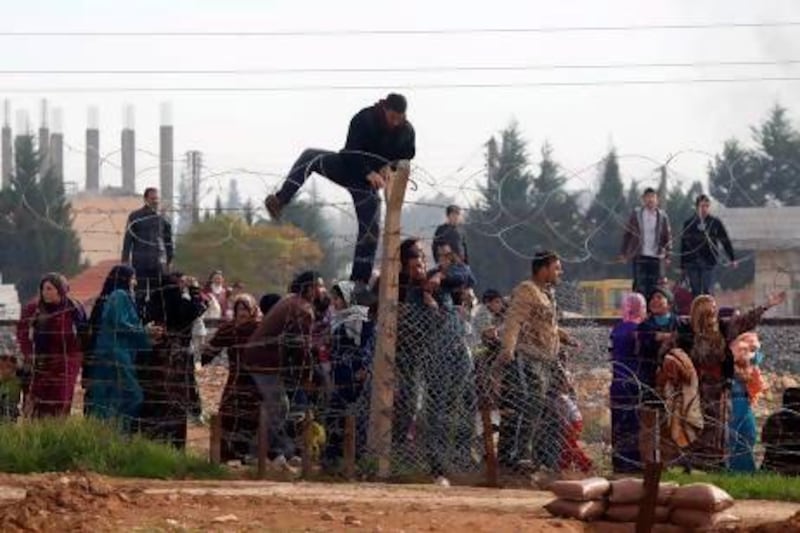Syria would not use chemical weapons against its own people, the foreign ministry said yesterday.
The Bashar Al Assad regime was responding to United States claims that intelligence officials had detected activity around more than one of Syria's chemical weapons sites.
Also yesterday, the Syrian air force dropped bombs near the Turkish border while the violence spilled over into Lebanon.
"In response to the statements of the US foreign minister, Syria confirms repeatedly it will never, under any circumstances, use chemical weapons against its own people, if such weapons exist," the ministry said. The New York Times had earlier carried a report citing a US official saying the regime had been carrying out "potential chemical weapon preparation".
The US secretary of state, Hillary Clinton, issued a warning to Damascus yesterday. "This is a red line for the United States," she said on the eve of a Nato meeting in Brussels. "Once again we issue a very strong warning to the Assad regime." Damascus acknowledged for the first time in July that it possessed chemical weapons.
The crisis in Syria continues to threaten the stability of the country's neighbours.
Lebanon's state-run National News Agency said yesterday that Lebanese soldiers stationed near the village of Qaa in the Bekaa Valley returned fire into Syria after "armed men" shot at them from across the frontier on Sunday.
In Syria, activists reported heavy fighting between rebels and regime troops in the southern suburbs of Damascus as the army pressed an offensive to regain lost territory near the capital, including two air bases. The Britain-based Syrian Observatory for Human Rights said the fighting yesterday was concentrated in districts just south of Damascus, including in areas near the airport. The Observatory, which relies on reports from activists on the ground, said there were casualties.
The fighting over the past few weeks in and around Damascus - the seat of Al Assad's power base - has been the most serious in the capital since July.
The United Nations is planning to pull non-essential staff out of Syria because of the growing conflict and is restricting travel for those remaining in the country, a UN news agency said yesterday.
Meanwhile, Syria's foreign ministry spokesman Jihad Makdisi, a well-known advocate of Al Assad's regime, has resigned and is heading for London, the Observatory said yesterday.
* Associated Press, Agence France-Presse and Reuters





